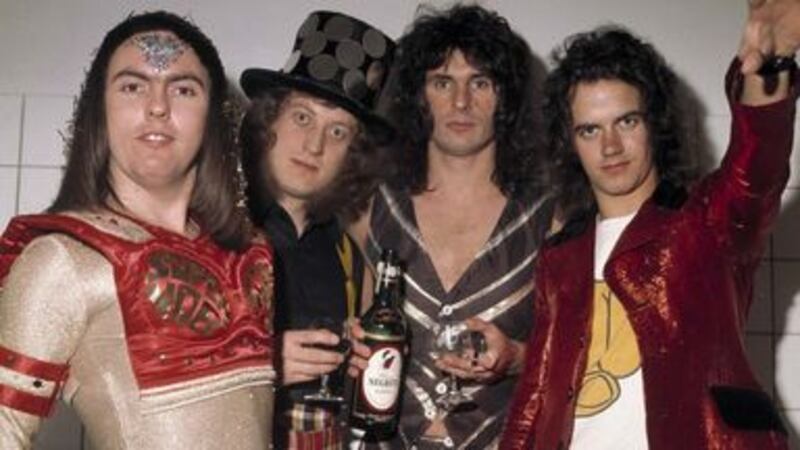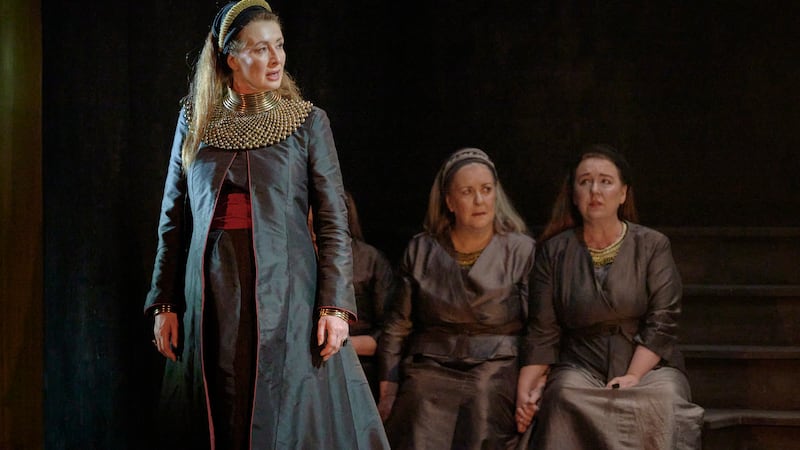Go mbeannaí Dia daoibh agus bhur gcéad míle fáilte isteach chuig the Bluffer’s Guide to Irish.
Last week we look at the irregular verb faigh to get but because in English we use the word in all kinds of situations, it might be having another look at it in Irish.
To say get up in Irish you wouldn’t say faigh suas but éirigh.
Amach leat is get out or isteach leat - get in.
Imigh or imigh leat is get away when you want someone to get out of your sight.
In A Mouthfull of Air, Anthony Burgess of Clockwork Orange fame gave off about the use of get.
“Foreign learner and native speaker alike can get through a great part of the day with only one verb – “get”
“I get up in the morning, get a bath and a shave, get dressed, got my breakfast, get into the car, get to the office, get down to work, get some coffee at eleven, get lunch at one, got back, get cracking, get angry, get tired, got home get into a row with my wife, got to bed (or get my head down).
Irish, and every other language of course, has different ways of saying all the above without using faigh.
When you want to tell people when you got up at six, you’d say d’éirigh mé ar a sé a chlog.
“Bhí folcadh agam agus bhearr mé mé féin - I’d a bath and a shave, etc, etc.
To get somewhere or arrive at a place you would say bhain mé an siopa amachsa deireadh - I finally got to the shop.
When you are saying it is getting something, late, dark, boring, fit etc, you would use ag éirí which literally means rising but-in this case it means becoming so tá Noel ag éirí iontach neirbhíseach - Noel is getting very nervous or tá sé ag éirí dorcha - it is getting dark.
Or you could say something like d’éirigh sí tinn ar an traein - she got sick on the train.
But verbs other than éirigh can take the place of get in Irish.
You might have a friend who is a wee bit tight-fisted when parting with cash and while in English you might say it’s hard to get blood out of a stone, in Irish you would say isdoiligh olann a bhaint de ghabhar, literally, it’s hard to get wool off a goat!
We’ll be looking at tar meaning come in next week’s Bluffer and we use come instead of get in some phrases.
So if you are the type who suffers from vertigo or get faint at the sight of Daniel O’Donnell doing his early Elvis hip gyrating thing, you would say tagann meadhrán orm - I get dizzy spells, literally dizziness comes on me and this construction is very common in Irish so if you change meadhrán to fonn codlata it means you wanted to go to sleep, or tháinig slaghdán orm - I got a cold.
Now, all you hypochondriacs can now grab a dictionary and look up all the ailments known to medical science, make up a few more and try and get sympathy from your Irish-speaking significant others or your nearest and dearest.
Now this Bluffer has only dipped his little toe into the get ocean and I’m sure you can find others but in the meantime I’m off to get some kip, then get up, get my a** into gear, and get drunk and get away with murder.
CÚPLA FOCAL
éirigh(eeree) - get up
amach leat(amakh lat) - get out
isteach leat(istyakh lat) - get in
imigh leat(imee lat) - get away
d’éirigh mé ar a sé a chlog (jeeree may er a shay a khlug) - I got up at six o’clock
Bhí folcadh agam agus bhearr mé mé féin(vee fulcoo ugum agis vaar may may hane) - I had a bath and a shave
bhain mé an siopa amach sa deireadh (win may un shuppa amakh sa jeroo) - I finally got to the shop
tá Noel ag éirí iontach neribhíseach(taa noel eg eeree eentakh nerveeshakh) - Noel is getting very nervous tá sé ag éirí dorcha(taa shay eg eeree doraha) - it is getting dark
d’éirigh sí tinn ar an traein (jeeree she chin er un trayn) - she got/took sick on the train
isdoiligh olann a bhaint de ghabhar (iss dilee olan a wintch de gore) - it’s hard to get wool off a goat
tagann meadhrán orm (tagan maaraan orim) - I get dizzy spells
fonn codlata (fun cullata) - the desire to sleep
tháinig slaghdán orm (haneek slaydaan orim) - I got a cold


